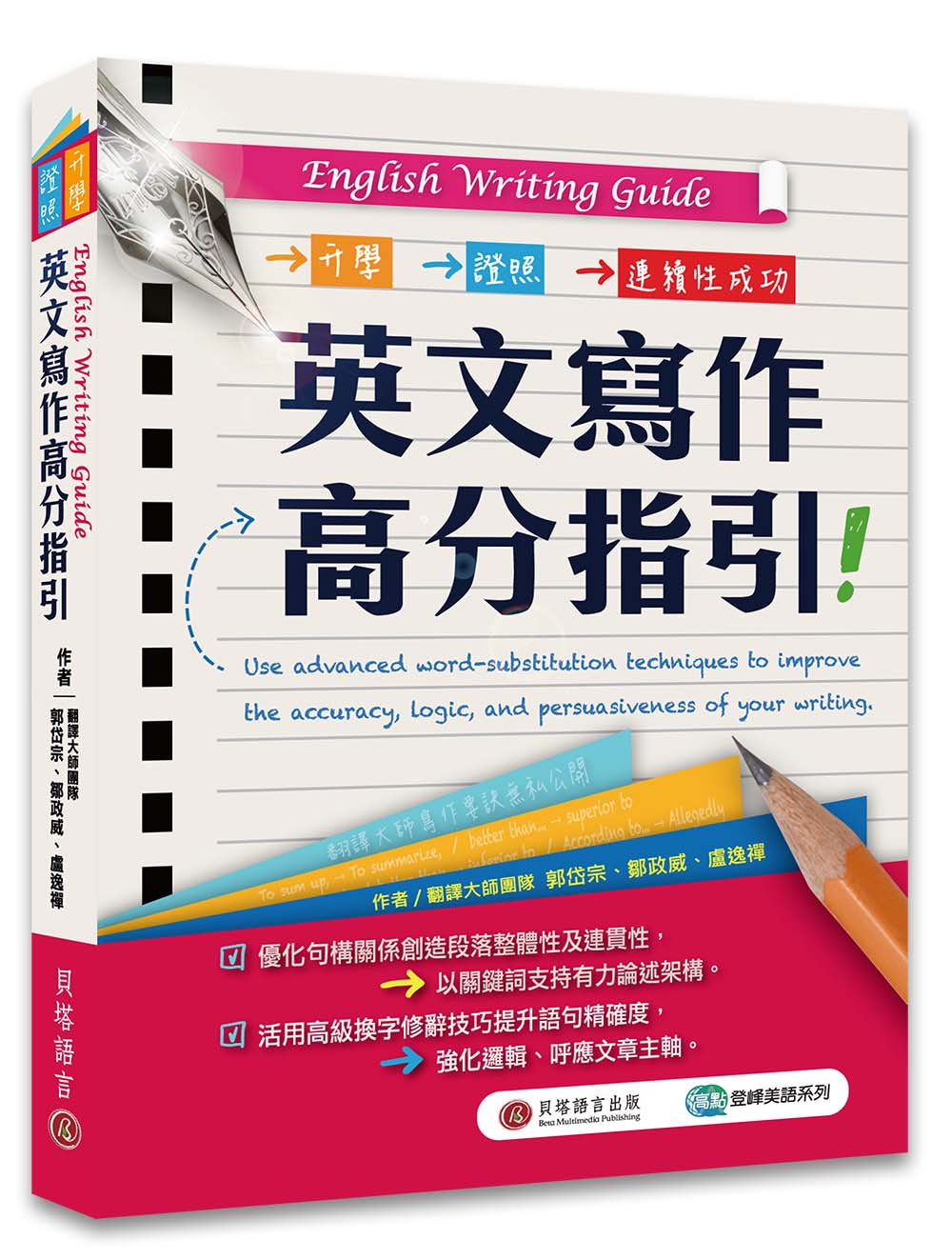簡化連接詞句子,讓文章再進化
當兩個句子的主詞相同時,帶有連接詞的句子可加以簡化,來看下面幾種不同的例子:
「主動」的動詞,用現在分詞 (V-ing) 來簡化。
例1
例1
■ When I opened the door, I saw a mouse running through the living room.
= Opening the door, I saw a mouse running through the living room.
= When opening the door, I saw a mouse running through the living room. (←when 也可保留)
當我打開門時,我看見一隻老鼠跑過客廳。
= When opening the door, I saw a mouse running through the living room. (←when 也可保留)
當我打開門時,我看見一隻老鼠跑過客廳。
例2
■ When I was a student, I often stayed up.
= Being a student, I often stayed up.
= When being a student, I often stayed up.(←when 也可保留)
當我還是學生時,我常熬夜。
「被動」的動詞,用「過去分詞」來簡化。
例
■ Because he was hit by a car, he stayed at the hospital for weeks.
= Hit by a car, he stayed at the hospital for weeks.(←句首的 hit 是過去分詞)
因為被車撞,所以他住院好幾個星期。
= Hit by a car, he stayed at the hospital for weeks.(←句首的 hit 是過去分詞)
因為被車撞,所以他住院好幾個星期。
完成式也可以簡化,不管是主動或被動,只要把 have / has / had 改成 having 即可。
Have / has / had + 過去分詞 → Having + 過去分詞
Have / has / had + 過去分詞 → Having + 過去分詞
例
■ Since Peter had watched this movie before, he felt bored to watch it again.
→Having watched this movie before, Peter felt bored to watch it again.
因為 Peter 之前已經看過這部電影,所以要他再看一次,他覺得相當無趣。
★注意:當句子因為簡化而使名字消失時,要把下一句中的代名詞改回人名。
→Having watched this movie before, Peter felt bored to watch it again.
因為 Peter 之前已經看過這部電影,所以要他再看一次,他覺得相當無趣。
★注意:當句子因為簡化而使名字消失時,要把下一句中的代名詞改回人名。
更多精彩內容請看:
郭岱宗、鄒政威、盧逸禪
《英文寫作高分指引》


